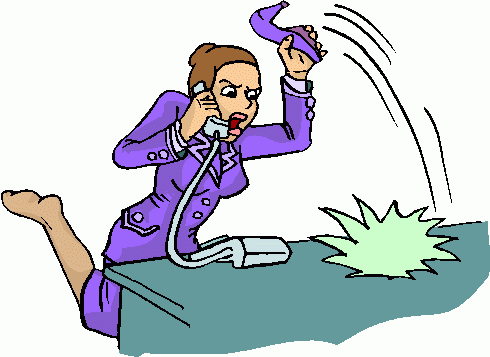Whenever we encounter customer complaints, then the L.E.A.R.N. Principle may help you. Disgruntled customers are everywhere. We cannot please everyone but applying the L.E.A.R.N. Principle will certainly pacify the displeased customers.
Why is handling customer complaint important?

First and foremost, customers are the lifeblood of your business. Customers deserve to be honored and treated well. Value your customers and don’t see them as a big peso sign coming into your establishment. If you do that, you are prone to loss – revenues and relationship. Yes, the key is relationship. Building relationship between you and your customers is necessary. Care for them and make them care for you in return. The L.E.A.R.N. principle discusses how you handle complaints effectively.
L – listen > the key to effective communication is through listening. Never butt in instead allow the customer to talk and express himself, otherwise, it will only ignite anger.
E – empathize > understand the customer, and feel the pain as if you were in his shoes.
A – apologize > there’s no other better word than saying “I am sorry”. Three words yet so heart-melting and peace-making. Try it, it works. Apologize and never blame the customer.
R – react > resolve the problem immediately. A customer calms down little by little when he sees solutions to his problems, and when the staff acts on it without delay.
N – now > As mentioned above, avoid delays and promises. Take instantaneous action.
 There are some customers who do not complain, because they are doubtful and unconvinced about the eagerness and ability of the business to resolve disputes rationally. Therefore, they withdraw their patronage and pour scorn on the company by giving negative word-of-mouth statements. However, for you to be able to stay away from negative criticism, a careful complaint management can save the business unwanted expenditures. For an instance, negative feedback from displeased customers means profit loss, and this calls for additional investment in advertising in order to win new customers. Complaints tell business how to perform the job better and faster.
There are some customers who do not complain, because they are doubtful and unconvinced about the eagerness and ability of the business to resolve disputes rationally. Therefore, they withdraw their patronage and pour scorn on the company by giving negative word-of-mouth statements. However, for you to be able to stay away from negative criticism, a careful complaint management can save the business unwanted expenditures. For an instance, negative feedback from displeased customers means profit loss, and this calls for additional investment in advertising in order to win new customers. Complaints tell business how to perform the job better and faster.
Customer complaint is a very ordinary thing we hear and encounter day by day. When a customer suggests, thank him, and if he complains, still thank him. In fact, complaints are valuable and treasured. Why? Because without these complaints, business will not be able to determine its flaws, right? So, if that happens, there will be no room for progress and excellence. Everyone has become a customer, or has experienced being confronted by a customer. Listen and respect.









I am presently conducting a research study entitled “DEVELOPMENT OF CONTEXTUALIZED ACTIVITY-BASED MATERIALS FOR ENGLISH FOR ACADEMIC AND PROFESSIONAL PURPOSES” in partial fulfillment of the requirements for the degree in Master of Arts in Education major in Language Education.
For this reason, I earnestly request for your permission for me to use this article “How to Handle Customer Complaints” as one of the reading selections to be included in the materials.
Anticipating your kind attention and favorable response on this matter.
Thank you very much.
Respectfully yours,
RACHAELLE S. TONGOL
Researcher